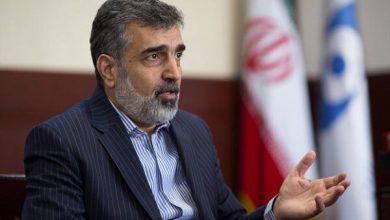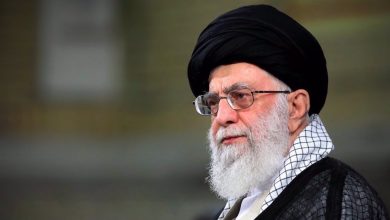Israeli Minister: The monumental impact of Imam Khomeini’s Islamic Revolution
Israeli Defense Minister Moshe Dayan characterized the Islamic Revolution in Iran as a "significant upheaval," forewarning of its detrimental consequences for the region.

He cautioned that the revolution would escalate the military threat from both the north and east and predicted that the establishment of an Islamic regime in Iran would provide backing to Palestinian groups, thereby potentially jeopardizing Tel Aviv (Jaffa). At that point, there was little awareness of the significant and lasting effects this revolution would have on shaping regional dynamics. Western and Israeli intelligence agencies recognized that the revolution’s impact would extend beyond Iran, potentially altering the political landscape of neighboring countries, especially within the region.
Western nations viewed the Iranian Islamic Revolution as a potential source of destabilizing ideologies that could exert influence across the region and pose a risk to their strategic interests and security, especially concerning the safety of Israel.
Informed about the foundational concepts and their origins, individuals recognized the strong leadership guiding these efforts, led by Imam Khomeini. Known for his clear vision regarding the continuation of the struggle and the management of political affairs, Khomeini served as the central figurehead and unifying force for the Iranian populace.
Imam Khomeini effectively transformed the intrinsic charisma associated with the Prophet Muhammad (PBUH), which was notably evident among Shia clerics, into a formalized religious authority. He pioneered the notion of an autonomous religious leadership that stood resilient against both external and internal influences within the religious framework.
Imam Khomeini’s insistence on independence was pivotal in his dismissal of reliance on both Eastern and Western powers. Theoretically, Imam Khomeini was a well-rounded thinker, adept at synthesizing diverse intellectual domains including mysticism, ethics, politics, and jurisprudence. He believed that the application of these principles within society could negate the necessity for foreign ideologies.
The Imam maintained that neither Russian socialism nor American capitalism should be adopted. Simultaneously, Western nations deduced that this revolution, coupled with Imam Khomeini’s ideologies, would heighten awareness within the Islamic world about Palestinian rights and potentially endanger the interests and survival of the Zionist state.
In this context, reference was made to Imam Khomeini’s proclamation of the last Friday of Ramadan as International Quds Day, which aims to serve as a unifying observance for the Islamic community and the global population. He underscored the spiritual obligation to work towards the liberation of Jerusalem and Palestine, stressing the responsibility placed upon Muslims for every moment Palestinians continue to live under what he termed the entity of “Israel.” Imam Khomeini also forecasted the eventual removal of this entity from global recognition.
Prior to his successful overthrow of the Shah’s regime, Imam Khomeini exemplified a vision of freedom starkly opposing notions such as occupation, imprisonment, and usurpation—issues that resonate powerfully with people’s emotions. The type of freedom advocated by the late Imam posed a significant challenge to the Zionist regime and its allies. It represented a profound threat, envisioning a world steered by liberated individuals.
Imam Khomeini’s focus extended beyond the immediate plight of Palestinian territories and inhabitants under occupation. He identified a broader, integral aspect of the issue: the worldwide struggle of oppressed populations against their oppressors. To equip these marginalized groups with practical global support, Imam Khomeini formulated a series of concepts centered on freedom and resistance, intricately linking them to the Palestinian cause and delineating a strategic pathway. A pivotal component of this strategy was the establishment of Quds Day.
Imam Khomeini emphasized that Quds Day should transcend being solely a focus on the hardships faced in Jerusalem, advocating instead for a worldwide movement for all oppressed populations. He called for the dismantling of U.S. and other colonial capitalist nations’ dominance and arrogance, along with their allies like Israel. The Imam urged a historical cleansing of the figures symbolizing American-Western supremacy, underscoring that as long as such forces remain influential, global justice will be unattainable and colonial powers will persist in controlling various regions globally.
Imam Khomeini, by reaching beyond geographical confines, conveyed a profound message to the Islamic community, proclaiming that the revival of Quds Day would act as a catalyst for their awakening.
Following his death, during a period when the Palestinian cause experienced waning attention due to normalization agreements with Israel, Imam Khomeini’s vision revitalized the aspirations of the Muslim community to reclaim Jerusalem. His initiation of International Quds Day and the staunch backing of the Islamic Republic for Palestinian resistance movements have played a pivotal role in reshaping the strategic landscape. These efforts have influenced the dynamics of recent conflicts, shifting the balance of power towards efforts aimed at achieving Palestinian liberation from the Jordan River to the Mediterranean Sea.
The late South African President Nelson Mandela notably recognized this fact when he remarked:
Since the beginning of his revolutionary movement, Imam Khomeini remained unwavering in his commitment to the causes of Palestine and Jerusalem. Despite facing numerous international challenges, his resolve was steadfast and unyielding. For Imam Khomeini, the Palestinian issue was a core tenet of his beliefs, impervious to negotiation or division. Throughout his life, he consistently championed the cause of unity and solidarity, advocating for cohesion among Muslims and support for the oppressed worldwide.
In a gesture of recognition, former Soviet Union leader Mikhail Gorbachev paid homage to Imam Khomeini, remarking:
“He transcended the limitations of time and space, leaving an indelible mark on world history.”
**Reported by: Najah Mohammed Ali**







